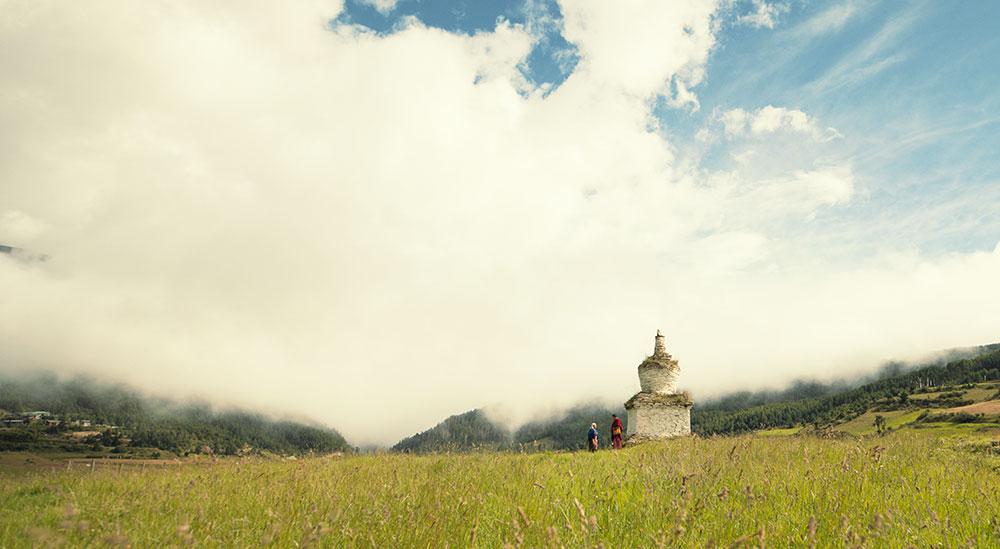Jigmi Wangdi
Pawo Choyning Dorji’s latest cinematic creation, “The Monk and the Gun”, made quite the impression at the 50th Telluride Film Festival this past weekend.
The film is set to have its premiere at the Toronto International Film Festival this week. In a candid conversation with Kuensel, Pawo Choyning expressed his hope that this film would shed light on the uniqueness of Bhutan, particularly for the younger generation.
“Bhutan holds a special place in history. It was the last country to connect to the internet and introduce television”, Pawo Choyning remarked.
“Furthermore, Bhutan stands alone as the only nation in the world where democracy was peacefully ushered in by His Majesty the Fourth King, and the transition to democracy occurred without the upheaval and revolution that marked similar transitions elsewhere,” he added.
Set against the backdrop of 2006, before Bhutan’s inaugural elections, Pawo Choyning Dorji aimed to capture the essence of Bhutan’s transformation during that pivotal time.
He expressed, “This film is a celebration of the innocence that defines the Bhutanese people and their culture.” He lamented that in the modern world, the lines between ignorance and innocence is often blur, and he aspired to spotlight Bhutan’s beautiful innocence and share it with the global audience.
Pawo Choyning, whose previous work “Lunana: A Yak in the Classroom” achieved international acclaim, described it as a simple tale of one man’s quest for home, happiness, and belonging.
However, “The Monk and the Gun” was his canvas for experimenting with different ideas and themes that hadn’t found expression in his earlier projects.
“This film weaves together four distinct storylines featuring eight diverse characters,” Pawo elaborated. “It is markedly different from ‘Lunana: A Yak in the Classroom.’ While my previous work was often regarded as touching, ‘The Monk and the Gun’ leans more towards the comedy-drama genre.”
Pawo expressed his gratitude for the warm reception the film has received in recent screenings. He felt deeply honoured to premiere a smaller production at the prestigious Telluride Film Festival, alongside much larger productions.
“The buzz surrounding the film here has been incredible,” he said. “A friend of mine overheard at the Denver airport that some people considered my film the standout favourite. The reviews have been overwhelmingly positive, with one film critic ranking ‘The Monk and the Gun’ among the top three films of the festival.”
Pawo Choyning emphasised that storytelling is an intrinsic part of Bhutanese culture, drawing inspiration from every facet of life.
“Storytelling is woven into the very fabric of Bhutanese society,” he said. “In our various regional dialects like Kurtoepa, Sharchokpa Khengpa, or Bumthangpa, there is no direct translation for storytelling. Not because we lack the words, but because storytelling carries profound significance in our culture.”
For Bhutanese, Pawo likened the act of sharing a story to untying a knot, symbolising liberation and freedom. He underlined the paramount role storytelling plays in Bhutanese society.
Beyond Telluride and Toronto, Pawo shared that “The Monk and the Gun” will embark on a journey to numerous other film festivals across New York, Canada, Asia, and Europe.
He also revealed that the film had received approval from the BICMA review committee and is scheduled for its Bhutanese premiere during the second week of October.


